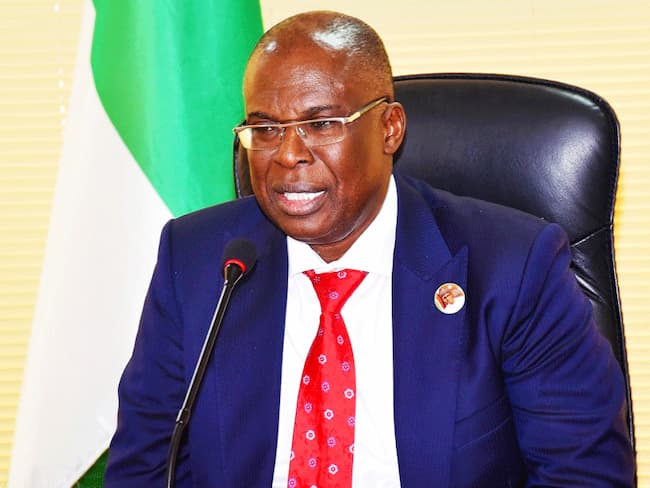The Nigerian government has asked the Organisation of Petroleum Exporting Countries (OPEC) to grant it a higher production quota under the OPEC+ accord.
The Minister of State, Petroleum Resources, Chief Timipre Sylva, while speaking on the sidelines of the Gastech 2021 conference in Dubai, on Tuesday said this request was made through a letter written to OPEC.
He assured that the government was working to resolve the technical problems affecting the country’s oil production output.
Sylva insisted the country’s full production capacity was closer to 2.2 million barrels per day, which should be reflected in a revised quota, even though Nigeria has struggled to produce at its current allocation.
According to S&P Global Platts, Nigeria self-reported crude output of 1.27 million bpd in August, down from 1.44 million b/d in July, one of the lowest in the last few years.
READ ALSO: BREAKING: Buhari Seeks Amendment To New Petroleum Act
The minister added that apart from its efforts to fix the technical difficulties, the basis for the current production quota, which was mainly because of the problems in the Niger Delta at the time, no longer exists.
Sylva explained that Nigeria’s production struggles was caused by technical problems from re-tapping reservoirs that had been shuttered to comply with the stringent OPEC+ cuts of the past 17 months.
He stated that oil production output could rebound to around 1.7 million bpd by November and two million barrels per day by the end of the year.
“We’ve just put a request on the table, and we expect that to be looked at. We have capacity for more production than we are producing right now. Unfortunately, we are constrained by the quota,” the minister said.
OPEC and its allies are scheduled to meet October 4, with the current OPEC+ agreement calling for the group to collectively raise output by 400,000 bpd each month through the end of 2022 and a review of the pact scheduled in December 2021.
At the group’s July meeting, Saudi Arabia, Russia, the UAE, Iraq and Kuwait were issued higher production baselines from which quotas are determined, that go into effect in May 2022.











